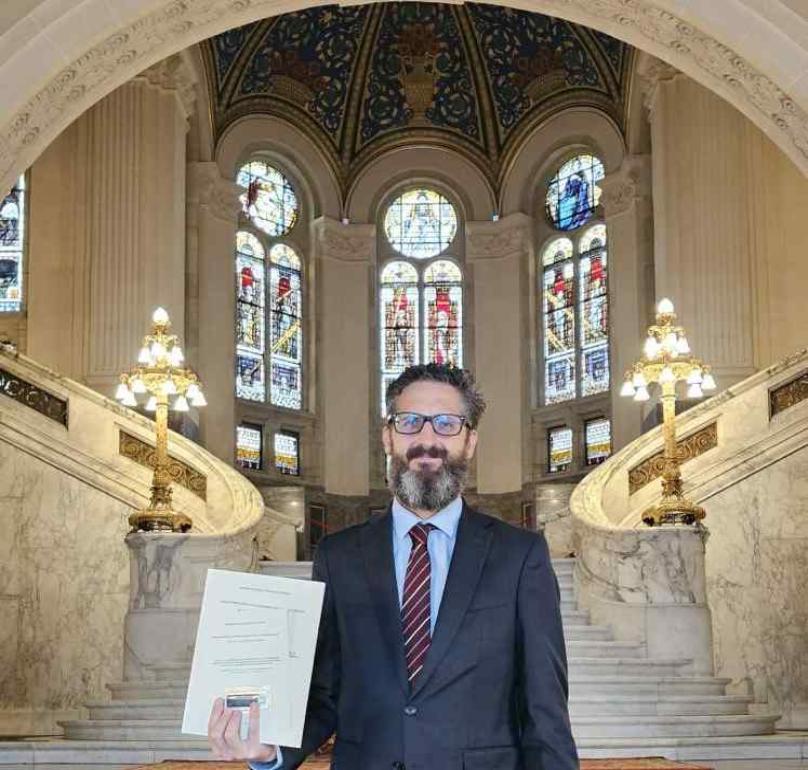
A Law Professor at the University of Strathclyde has responded to the International Court of Justice’s (ICJ) Advisory Opinion on states’ obligations to act on climate change, after representing a global conservation organisation at the hearings.
Francesco Sindico, Professor of International Environmental Law, was one of three Counsel who acted on behalf of the International Union for Conservation of Nature (IUCN) at the ICJ in The Hague, during the oral hearings in December 2024.
Legal consequences
The ICJ considered the questions of what obligations States have under international law to ensure the protection of the climate system; and what the legal consequences are for States where they have caused significant harm to the climate system.
The Court has now delivered its opinion, in which it has found that: the planet is facing an existential threat to the planet – this is a time of climate collapse and the legal goal of the international community is 1.5C, not 2C; the level of due diligence required by States under international law to prevent significant harm to the climate system, which applies to all States, is based on the level of probability of risk of harm – this links science with law; considering the science and the ongoing climate collapse, fossil fuel subsidies do not align with a State’s due diligence obligation to protect the climate system and may be unlawful under international law; this obligation – prevention of significant harm to the climate system – is an ’erga omnes’ obligation, which means that any State can raise its breach, on behalf of the international community, against another State which has committed the breach.
While the advisory opinion is not legally binding, it is likely to have a significant impact on the future of climate action.
IUCN was among 12 international organisations, along with 98 states, participating in the proceedings. Its contributions were coordinated by its World Commission on Environmental Law (WCEL).

Professor Sindico, who is Co-Chair of the WCEL Climate Change Law Specialist Group, said the announcement of the opinion marked “the end of a long journey.”
He said: “WCEL has worked tirelessly for more than two years on these historic proceedings. We were present at every step.
“We are pleased to see that all our key points are reflected in the Court’s Opinion. We welcome the Court’s articulation of a clear legal path for States – one grounded in the Paris Agreement, other international treaties, and customary international law.
This path demands a high level of due diligence and close attention to the Paris temperature goal. WCEL will now turn its focus to the potential impact of these three Advisory Opinions on climate multilateralism and nature protection.
Professor Sindico is also Director of the award-winning C²LI (Climate Change Legal Initiative), Strathclyde’s first social enterprise spinout company, which works on enhancing legal knowledge and expertise, to drive just and transformational climate action.
Professor Sindico contributed to a webinar organized by C²LI in collaboration with the British Institute of International and Comparative Law and the IUCN WCEL Climate Change Law Specialist Group Litigation Cluster. He has also written about the advisory opinion on the Strathclyde Law School blog.